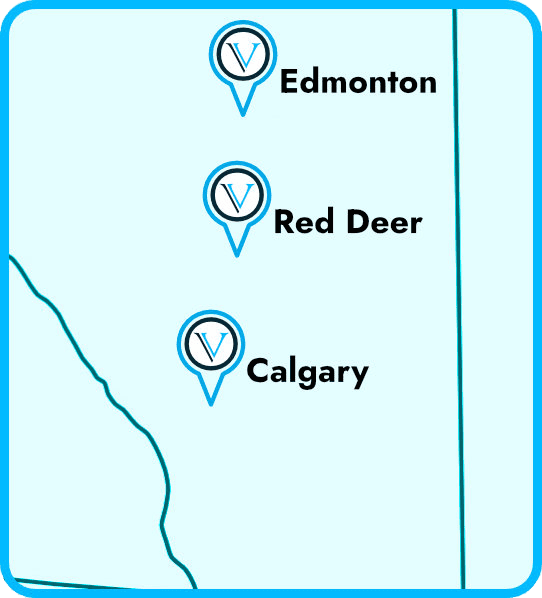
Holographic wills are entirely written by hand by the testator, rather than typed and printed. The decision to do this may be for convenience, speed, or to save money.
Either way, handwritten wills come in many forms, from a few scribbled notes to pages of handwritten text.
Writing a will by hand has been a legally valid way to create a will in Alberta since 1926 — even if it is not notarized. However, certain rules must be followed and the will’s legality depends on how skilfully it is drafted.
There are certain risks associated with handwriting your final wishes. It’s generally best to discuss your plans with a qualified estate planning lawyer, even if you plan on creating a holographic will.
Handwritten wills in Alberta: common mistakes
Under the Wills and Succession Act, Alberta recognizes the validity of handwritten wills — but this doesn’t apply to all provinces in Canada.
The Act outlines some specific rules that must be followed when creating a legally valid holographic will. The Alberta courts will consider these when determining the validity of a handwritten will, but can exercise some discretion depending on circumstances.
It can be a serious mistake to ignore these rules, as it could mean that your final wishes cannot be completed.
Some typical mistakes we see with holographic wills in Alberta include:
- Incorrect wording leading to ambiguities, contradictions or unclear meaning
- Incorrect addition of changes made at a later date (rendering them not legally binding)
- Not entirely handwritten (mixing type and handwritten text)
- Missed clauses or additions
- Omission of some parts of the estate
- Someone else other than the testator wrote the will
- Tax, estate or bequest problems raised by the contents of the will
Benefits of a lawyer drafting a will vs a handwritten will
For many people, communicating final wishes is an important task for one’s peace of mind. The surety that loved ones are cared for after their passing is a great comfort,
A will drafted with the expertise of an estate planning lawyer provides this peace of mind, while one that is hastily handwritten may not.
Given the minimal expense involved in creating a will with a lawyer, it’s usually a worthwhile investment for the extra sense of certainty it brings.
Some of the main benefits of working with a qualified lawyer to create your will rather than handwriting it includes:
Cover the entire estate and address minor beneficiaries
Holographic wills sometimes omit key details that should be addressed, such as all assets in the estate. A qualified lawyer will help ensure that all assets in the estate are covered by the terms of the will — asking questions to understand fully what you want to happen after your passing.
A lawyer also understands the legal tools available and may, for instance, advise you to set up a trust to better allow for a controlled distribution of assets to minor beneficiaries.
Less chance of invalidity or intestacy
Holographic wills are more likely to be declared invalid by a judge than wills drafted by competent estate planning lawyers.
Qualified lawyers understand the correct terminology to be used in wills and ensure correct documentation according to the Wills and Succession Act.
Handwritten wills tend to be far less formal and often use wording that can be interpreted in several different ways. Because the testator is generally untrained in estate law, this can lead to claims of intestacy or legal challenges from family members and/or other beneficiaries.
Any estate assets not included in a holographic will be treated the same as if there was no will, and Alberta’s intestacy laws will come into play.
The presence of witnesses reduces the chance of challenges
With a traditional will drawn up by a lawyer, the presence of two witnesses at the same time is required in Alberta. This ensures that the testator signed the will and reduces the chance of challenges.
A holographic will has no such requirement for witnesses. It is easier to challenge its validity on the grounds that the testator lacked the mental capacity to create a will or that the will was signed under duress.
No expensive mistakes
If there are omissions of estate assets in a holographic will, the personal representative you select may need to apply both for probate and a letter of administration. This increases their costs and unnecessarily creates delays.
The legal challenges that may be mounted against holographic wills can also incur significant litigation expenses. If a family member contests the will, litigation lawyers and the Alberta courts may need to intervene to settle the dispute.
How to write your own holographic will
If you are determined to write a holographic will, the first step is to understand the provisions included in Alberta’s Wills and Succession Act.
Importantly, a holographic will must be written entirely in the will maker’s hand, signed by the testator and show a deliberate intention to dispose of property upon death. An old court ruling stated that “a holographic paper is not testamentary unless it contains a deliberate or fixed and final expression of intention as to the disposal of property upon death”.
Before naming executors and guardians, discuss your intentions with these individuals to ensure that they can perform these roles — or they may refuse the role and the court will need to appoint individuals.
Additionally, the will you write should:
- Use simple language to convey your intentions without attempting to use legal terms
- Use the full names of personal representatives, guardians and beneficiaries (with their relationships to you indicated).
- Cover all your property
- Explain why you are leaving a particular asset to a beneficiary
- Address the residue (everything else left in your estate once named assets have been allocated)
- Name contingent beneficiaries if the primary beneficiaries cannot or will not accept an asset
- Include the date
If you follow the above rules, your holographic will can be legally binding and stand up to scrutiny in court.
But the potential for things to go wrong with a holographic will is high, so it is generally best to work with a wills and estate lawyer.
If you’re considering writing a will, speak to an experienced estate planning lawyer at Vest Estate Lawyers in Alberta for an initial consultation about your needs.

We currently have three offices across Alberta — Edmonton, Calgary, and Red Deer. However, we serve the entire province of Alberta. We also have the infrastructure to work with any of our clients virtually — even the furthest regions of Alberta.
Call us toll-free at 1-877-448-3131 to get routed to the best office for you or contact us online to schedule an appointment.
We also have a dedicated intake form to help you get the ball rolling. Our intake team will review your specific case and advise you on the next steps to take and what to expect moving forward.
Our offices are generally open 8:30 a.m.—5:00 p.m., Mon—Fri.

Sarah Levine
WILLS and ESTATES LAWYER
Sarah Levine is a lawyer in the firm’s Edmonton office. She carries on a varied practice, focusing on all forms of estate planning and estate administration.


